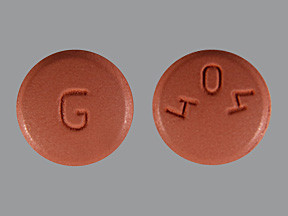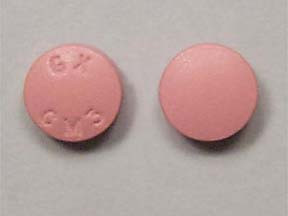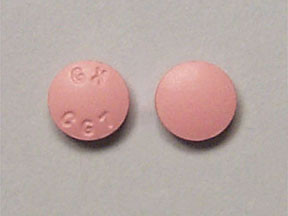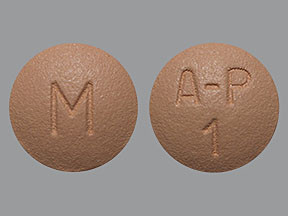ATOVAQUONE/PROGUANIL - ORAL
PHONETIC PRONUNCIATION: (a-TOE-va-kwone/proe-GWAHN-il)
COMMON BRAND NAME(S): Malarone
GENERIC NAME(S): atovaquone/proguanil HCl
Uses
USES: This medication contains 2 medicines: atovaquone and proguanil. It is used to prevent and treat malaria caused by mosquito bites in countries where malaria is common. Malaria parasites can enter the body through these mosquito bites, and then live in body tissues such as red blood cells or the liver. This medication is used to kill the malaria parasites living inside red blood cells and other tissues. In some cases, you may need to take a different medication (such as primaquine) to complete your treatment. Both medications may be needed for a complete cure and to prevent the return of infection (relapse). Atovaquone/proguanil belongs to a class of drugs known as antimalarials. The United States Centers for Disease Control provide updated guidelines and travel recommendations for the prevention and treatment of malaria in different parts of the world. Discuss the most recent information with your doctor before traveling to areas where malaria occurs.
How to use ATOVAQUONE/PROGUANIL - ORAL
HOW TO USE: Read the Patient Information Leaflet if available from your pharmacist before you start taking this medication, and each time you get a refill. If you have any questions regarding the information, consult your doctor or pharmacist. Take this medication by mouth with food or a milky drink (such as whole milk, milkshake) that contains fat. If you vomit within 1 hour of taking a dose, repeat the dose. If you have persistent vomiting after taking atovaquone/proguanil, contact a doctor right away. You may need another medication to prevent vomiting or a different malaria medication. Swallow the tablet whole because of its bitter taste. Do not chew. If you have trouble swallowing tablets, this medication may be crushed and mixed with condensed milk. Take the entire mixture right away. Do not save for future use. Dosage is based on your medical condition, on whether you are preventing or treating the illness, and your response to treatment. Dosage in children is also based on weight. To prevent illness, take atovaquone/proguanil usually once daily at the same time each day, or as directed by your doctor. Start this medication 1-2 days before you enter the malarious area; continue while in the area and for 7 days after leaving. If needed, primaquine can be taken for 14 days starting during the last week of treatment with atovaquone/proguanil or starting immediately after you have finished treatment. To treat malaria, take this medication usually once daily for 3 days. Follow your doctor's instructions. It is very important to continue taking this medication exactly as prescribed by your doctor. To help you remember, take it at the same time each day for the entire prescribed time. Do not take more or less of this drug than prescribed. Do not stop taking this drug before completing the full treatment unless directed to do so by your doctor, even if you feel better or do not feel sick. Skipping or changing your dose without approval from your doctor may cause prevention/treatment to be ineffective, cause the amount of parasite to increase, make the infection more difficult to treat (resistant), or worsen side effects. It is important to prevent mosquito bites (such as by using appropriate insect repellents, wearing clothes that cover most of the body, remaining in air-conditioned or well-screened areas, using mosquito nets and insect-killing sprays). Buy insect repellent before traveling. The most effective insect repellents contain diethyltoluamide (DEET). Ask your doctor or pharmacist to recommend the appropriate strengths of mosquito repellent for you/your children. No drug treatment is completely effective in preventing malaria. Seek immediate medical attention if you develop symptoms of malaria (such as fever, chills, headache, other flu-like symptoms). Malaria can return, even months after completing this prescription. Quick treatment of malaria infection is needed to prevent serious, possibly fatal, outcomes. When using atovaquone/proguanil for treatment, tell your doctor if your condition persists or worsens.
Side Effects
Precautions
Interactions
Overdose
Images

- color
- buff
- shape
- round
- imprint
- A-P 2, M

- color
- pinkish-brown
- shape
- round
- imprint
- 404, G

- color
- pinkish-brown
- shape
- round
- imprint
- 404, G

- color
- pinkish-brown
- shape
- round
- imprint
- 404, G

- color
- pinkish-brown
- shape
- round
- imprint
- 404, G
Reviews
Faq for ATOVAQUONE/PROGUANIL - ORAL
Atovaquone/Proguanil, also known as Malarone, is an oral medication used to prevent and treat malaria.
Atovaquone/Proguanil works by disrupting the growth and reproduction of the malaria parasites in the body.
It is recommended to take Atovaquone/Proguanil with food or a milky drink to improve absorption. The exact dosing instructions will be provided by your healthcare provider based on your specific situation.
Common side effects of Atovaquone/Proguanil may include headache, stomach pain, nausea, vomiting, diarrhea, and dizziness. If these side effects persist or worsen, it is advised to consult your doctor.
It is important to consult with your healthcare provider before using Atovaquone/Proguanil during pregnancy. The benefits and risks should be weighed carefully.
Atovaquone/Proguanil may interact with certain medications, including rifampin, rifabutin, and certain antacids. It is important to inform your healthcare provider about all the medications you are currently taking to avoid any potential interactions.
Yes, it is crucial to continue taking precautionary measures against mosquito bites, such as using insect repellent, wearing protective clothing, and sleeping under mosquito nets. Atovaquone/Proguanil does not provide complete protection against mosquito-borne illnesses.
Atovaquone/Proguanil may be used in children, but the dosage will be adjusted according to their weight. It is always recommended to consult with a pediatrician before administering this medication to children.
The duration of Atovaquone/Proguanil treatment for malaria prevention depends on your travel plans and the risk level of malaria in the specific region. Your healthcare provider will provide guidance on the appropriate duration.
Disclaimer
IMPORTANT: HOW TO USE THIS INFORMATION: This is a summary and does NOT have all possible information about this product. This information does not assure that this product is safe, effective, or appropriate for you. This information is not individual medical advice and does not substitute for the advice of your health care professional. Always ask your health care professional for complete information about this product and your specific health needs.



No Reviews Yet